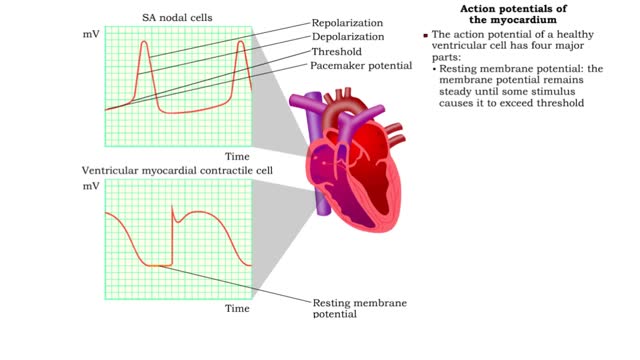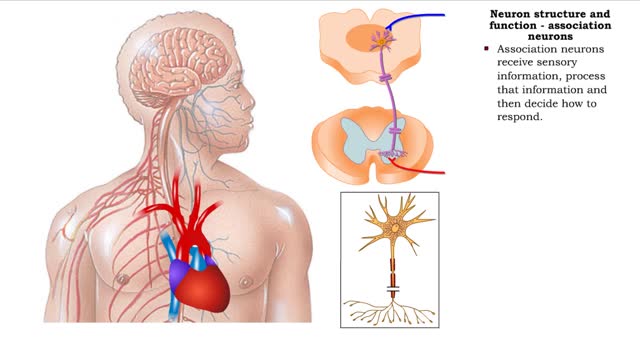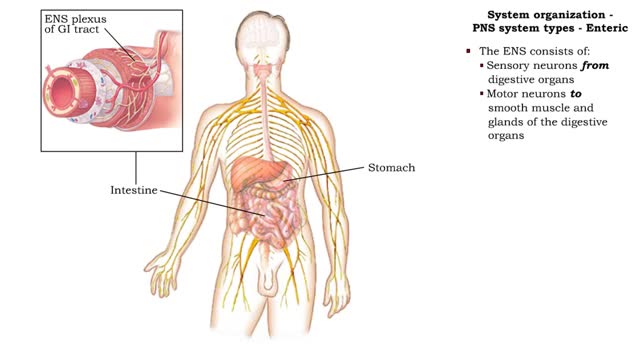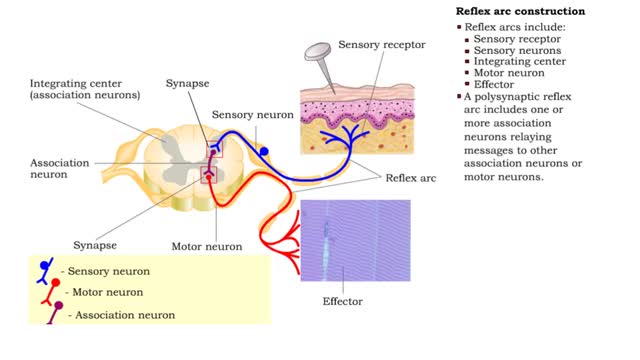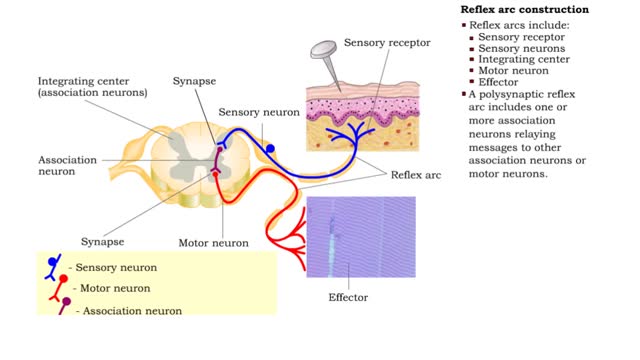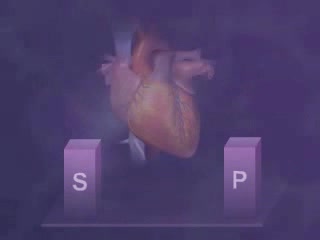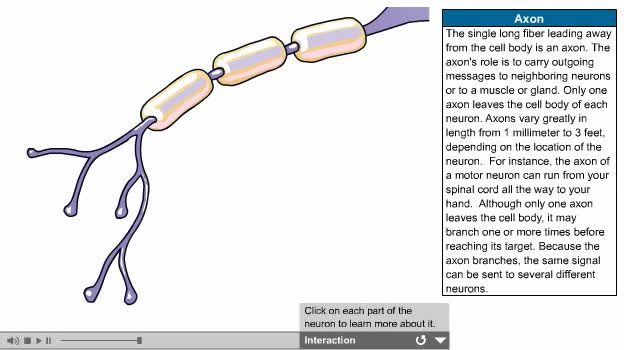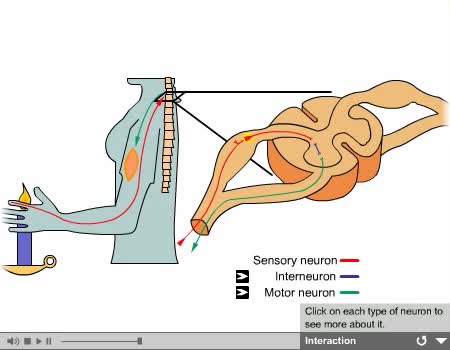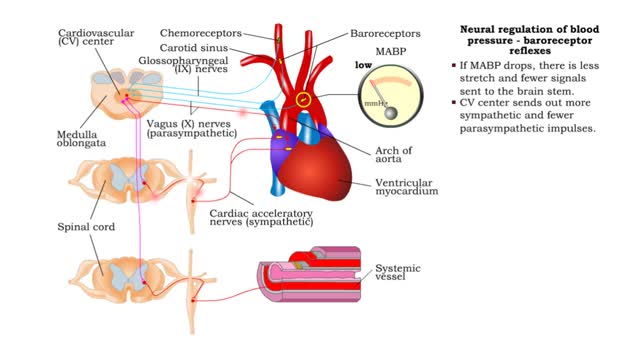Search Results
Results for: 'sympathetic neurons'
Depolarization of the SA node, Action potentials of the myocardium & ANS effects
By: HWC, Views: 11564
• A typical contractile cell in the myocardium has a resting membrane potential. • The resting membrane potential of cells in the SA node is not fixed, and is known as the pacemaker potential. • The action potential of a healthy SA nodal cell has three parts: • Pacemaker potential: ...
Neuron structure and function - sensory neurons, association neurons & motor neurons
By: HWC, Views: 11679
• The primary function of the nervous system is to provide rapid communication within the body to maintain homeostasis. • This function underlies behaviors, thinking and control of organ functions. • The basic functions of the nervous system are provided by: • Sensory neurons • ...
System organization - PPM system types (Somatic, Autonomic & Enteric) and Reflex arc types
By: HWC, Views: 11921
• The PNS consists of all nervous tissue outside of the CNS. • It is divided into three functional components: • Somatic nervous system (SNS) • Autonomic nervous system (ANS) • Enteric nervous system (ENS) • The SNS consists of: • Sensory neurons from skeletal muscles ...
By: HWC, Views: 11766
• Somatic reflexes are the rapid, predictable, and automatic responses of skeletal muscle to changes in stimuli. • A reflex arc is the pathway followed by the nerve impulse producing the reflex. • Reflex arcs include: • Sensory receptor • Sensory neurons • Integrating c...
By: HWC, Views: 11844
• Somatic reflexes are the rapid, predictable, and automatic responses of skeletal muscle to changes in stimuli. • A reflex arc is the pathway followed by the nerve impulse producing the reflex. • Reflex arcs include: • Sensory receptor • Sensory neurons • Integrating cen...
Autonomic Nervous System Animation
By: Administrator, Views: 15025
Parasympathetic Division Works to conserve energy and innervate the digestive system. When activated, it: stimulates the salivary and digestive glands. decreases the metabolic rate. slows the heart rate. reduces blood pressure. promotes the passage of material through the intestines along...
By: Administrator, Views: 15298
There are several types of neurons, three of which are: Motor neurons, Sensory neurons, Interneurons. The nervous system is usually described as having two interconnected divisions: the central nervous system (CNS) and the peripheral nervous system (PNS). CNS: Includes the brain and spinal...
By: Administrator, Views: 14875
Interneurons: - Are called central or associative neurons. - Located entirely within the central nervous system. - They function to mediate impulses between sensory and motor neurons.
Neural regulation of blood pressure - baroreceptor and chemoreceptor reflexes
By: HWC, Views: 12075
• The nervous system regulates blood pressure with two reflex arcs: baroreceptor and chemoreceptor. ■ Baroreceptors (pressure) and chemoreceptors (chemical) are located in the carotid sinus and aortic arch. • Carotid sinus reflex helps maintain normal blood pressure in brain. • Ba...
Advertisement



